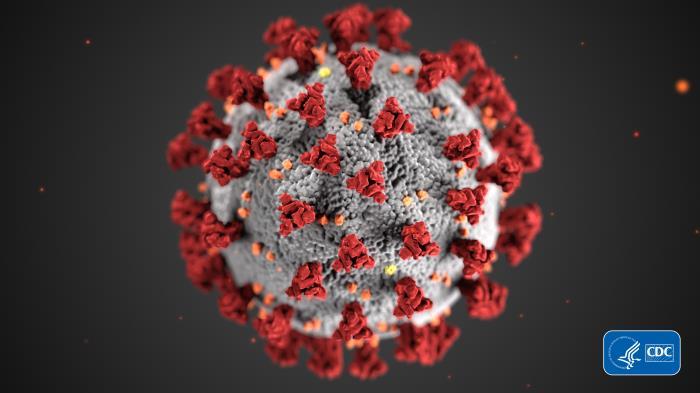
Caption
As of Thursday, COVID-19 had hospitalized 914,984 Georgians, while the virus had resulted in 21,593 confirmed or probable deaths. The state’s vaccination rate of 38% trails the national average.
Credit: CDC

As of Thursday, COVID-19 had hospitalized 914,984 Georgians, while the virus had resulted in 21,593 confirmed or probable deaths. The state’s vaccination rate of 38% trails the national average.
Georgia and other states with low COVID-19 vaccination rates are in a race against time with fast-replicating variants of the virus, a faculty member at the Morehouse School of Medicine said Thursday.
The various coronavirus vaccines now available are effective against the Delta variant, now responsible for the most new infections. But other variants could spring up soon unless more residents of low-vaccination states get vaccinated, Dr. Michelle Nichols, associate dean of family medicine at Morehouse, warned during a panel discussion sponsored by the school and the Peach State Health Plan.
“These variants are smart; they’re dangerous,” she said. “There’s a point at which variants will overtake us.”
Faculty members from Morehouse, state agency heads, representatives of Peach State Health Plan and educational, religious and nonprofit leaders spent an hour talking about what can be done to overcome vaccine hesitancy in Georgia.
As of Thursday, COVID-19 had hospitalized 914,984 Georgians, while the virus had resulted in 21,593 confirmed or probable deaths. The state’s vaccination rate of 38% trails the national average.
Nichols said a key factor in why so many Georgians are reluctant to get vaccinated is the amount of misinformation being spread about the shots. She said COVID-19 vaccinations will not affect a woman’s fertility, will not alter a person’s DNA and will not cause a person to contract the virus.
Dr. Kathleen Toomey, commissioner of the Georgia Department of Public Health, said another argument against getting the shot is that it won’t protect the recipient from contracting the virus.
“You can still acquire an infection,” she said. “But you’re less likely to become seriously ill or die. … Nothing is more dangerous than a serious case of COVID.”
Wade Rakes, president and CEO of Peach State Health Plan, said events such as Thursday’s panel discussion are important to getting out the word about the safety and efficacy of the various vaccines.
“When people are informed, they choose to join the group of people who are vaccinated,” he said. “That’s going to be the way for us to get up to the goal of [a] 70% [vaccination rate].”
But the most important way to raise public awareness about the need to get vaccinated is through people in the community those who remain unvaccinated know and trust, said Marvin Laster, CEO of the Boys & Girls Clubs of Albany.
“It takes the influencers: your doctor, your minister, your barber,” he said.
“You’ve got to meet the people where they are,” added Gail Fowler, CEO and Superintendent of Cirrus Academy, a charter school in Macon.
With Georgians ages 60 and over most likely to have received COVID shots, Fowler said an important group to concentrate the message on now is students 12 and over, the latest to become eligible for vaccinations.
Dr. Lilly Immergluck, a pediatrician and professor of immunology at Morehouse, said the group of Americans eligible for the vaccine least likely to be vaccinated is between the ages of 18 and 29. Yet, with the Delta variant now prevalent, the virus is spreading to that group more frequently than during the earlier stages of the coronavirus pandemic.
“We have to deliver a message to these young people they can relate to,” said Harry Douglas, a former wide receiver for the Atlanta Falcons who cofounded a nonprofit serving underprivileged young people and their families. “Delivery is very important to this process.”
This story comes to GPB through a reporting partnership with Capitol Beat News Service.